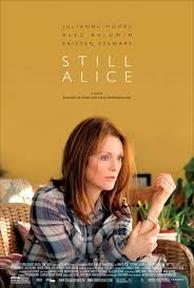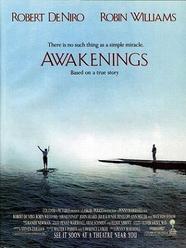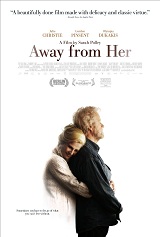
A renowned linguistics professor’s life unravels after she is diagnosed with rapidly progressing early-onset (familial) Alzheimer’s Disease
At the top of her game, 50-year-old Alice is diagnosed with a genetically linked, early onset, type of Alzheimer’s Disease. The movie follows an ambitious and intellectual woman through her loss of self with each painful aspect of her decline in memory, communication, and eventually her independence. As she experiences a fundamental loss of who she once was, we observe Alice and her family's adaptation to Alzheimer’s, as they struggle to find hope in an otherwise hopeless situation. Still Alice encourages us to redefine a life worth living when knowledge of ourselves is taken away.
At the top of her game, 50-year-old Alice is diagnosed with a genetically linked, early onset, type of Alzheimer’s Disease. The movie follows an ambitious and intellectual woman through her loss of self with each painful aspect of her decline in memory, communication, and eventually her independence. As she experiences a fundamental loss of who she once was, we observe Alice and her family's adaptation to Alzheimer’s, as they struggle to find hope in an otherwise hopeless situation. Still Alice encourages us to redefine a life worth living when knowledge of ourselves is taken away.
Neuropsychological Review
The Changing Self in Alzheimer’s Disease: a Personal Perspective Through “Still Alice”
Daniel G. Smith, M. S. (Contact )
Alzheimer’s Disease (AD) can be called the “ultimate thief” insofar as we define ourselves as “the sum of our combined experiences” (Wolfson, 2008). In Still Alice (based on the fictional book I’m Still Alice by neuroscientist Lisa Genova), Julianne Moore gives a stellar portrayal of Alice, a strong woman who must face a life with early-onset (familial) Alzheimer’s Disease (AD). A woman who defines herself by her intellect and strong facility with language must adapt to the many existential dilemmas and at the center, a fundamental loss of self that arises with this chronic, progressive, and at present, incurable condition.
The Changing Self in Alzheimer’s Disease: a Personal Perspective Through “Still Alice”
Daniel G. Smith, M. S. (Contact )
Alzheimer’s Disease (AD) can be called the “ultimate thief” insofar as we define ourselves as “the sum of our combined experiences” (Wolfson, 2008). In Still Alice (based on the fictional book I’m Still Alice by neuroscientist Lisa Genova), Julianne Moore gives a stellar portrayal of Alice, a strong woman who must face a life with early-onset (familial) Alzheimer’s Disease (AD). A woman who defines herself by her intellect and strong facility with language must adapt to the many existential dilemmas and at the center, a fundamental loss of self that arises with this chronic, progressive, and at present, incurable condition.




 RSS Feed
RSS Feed

